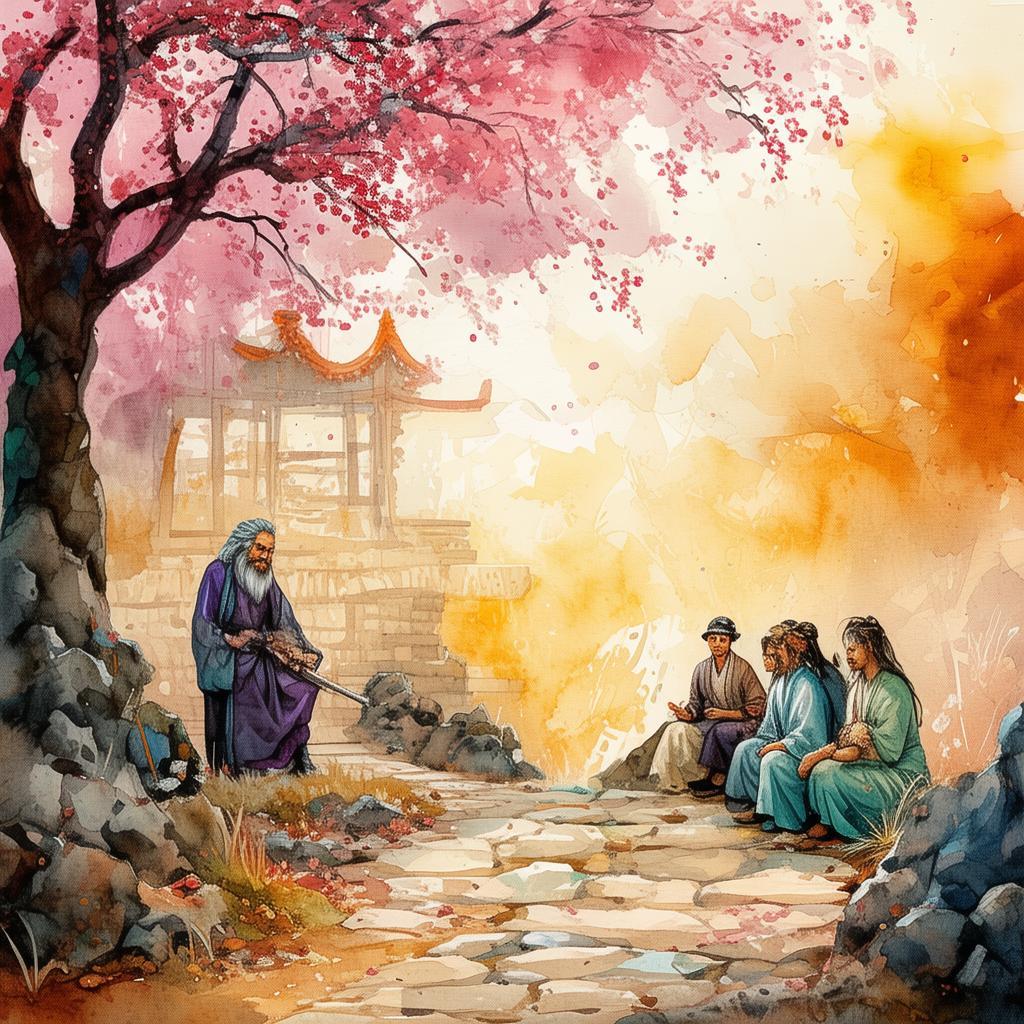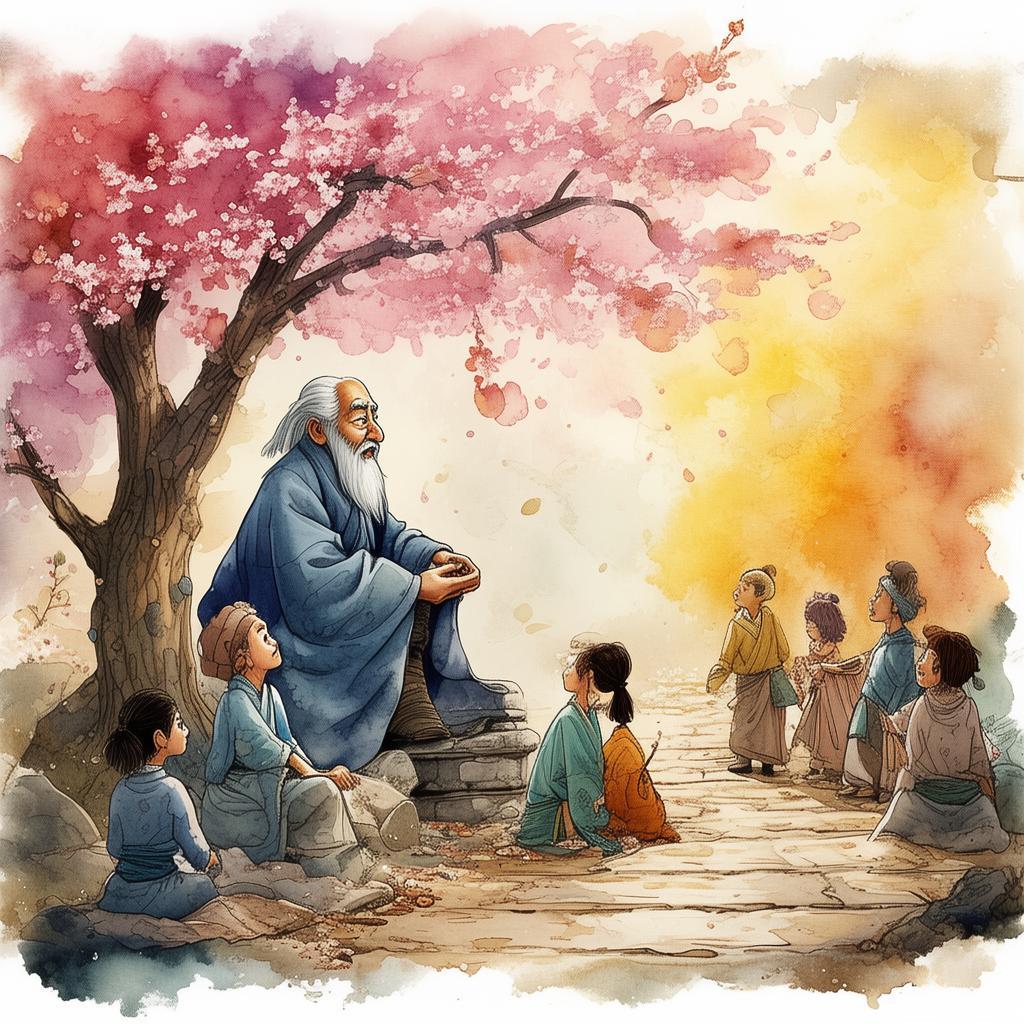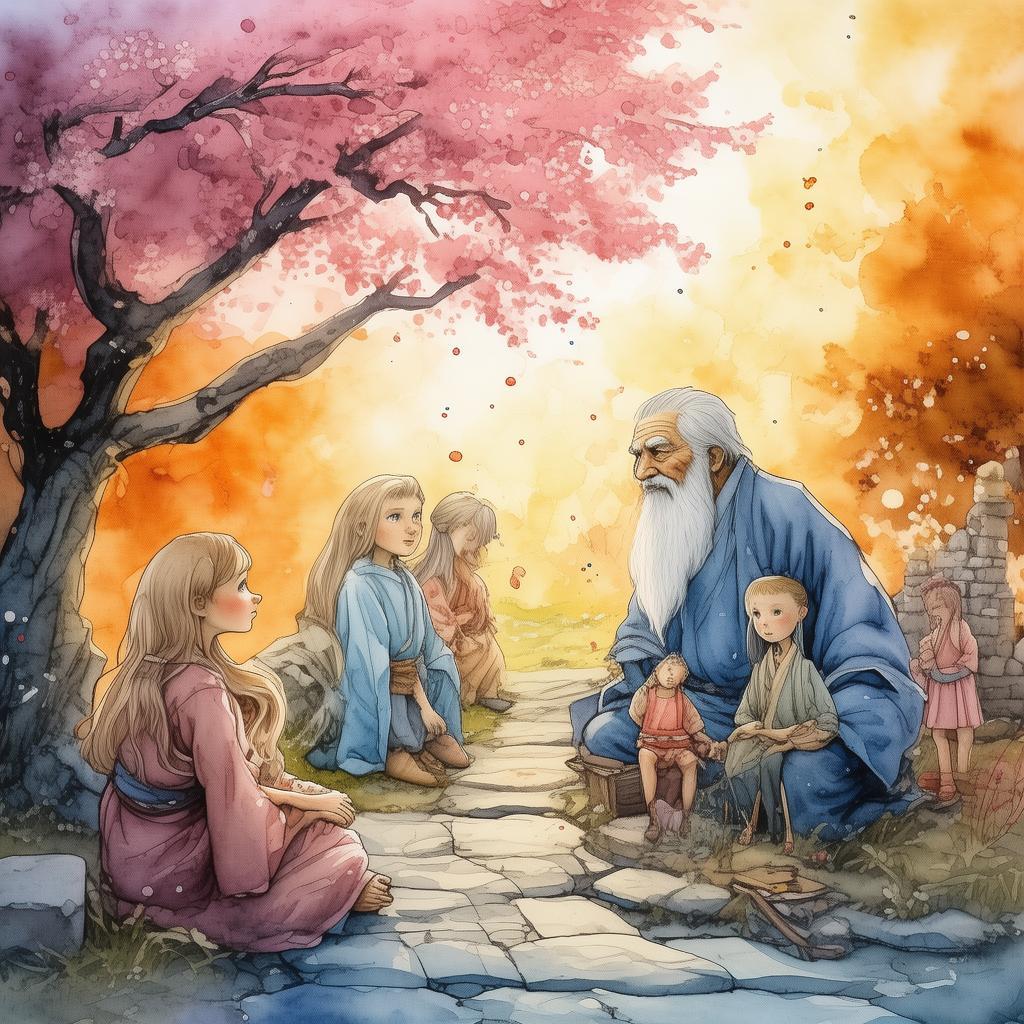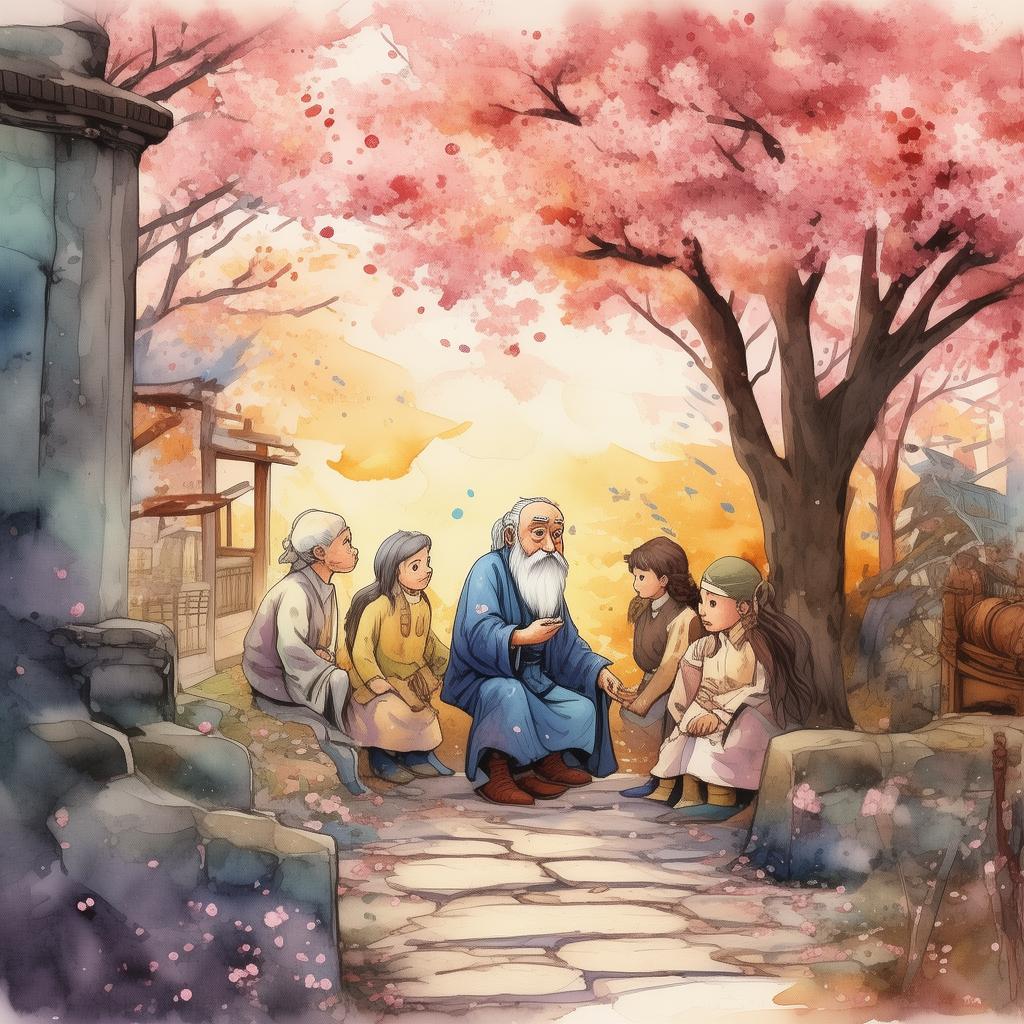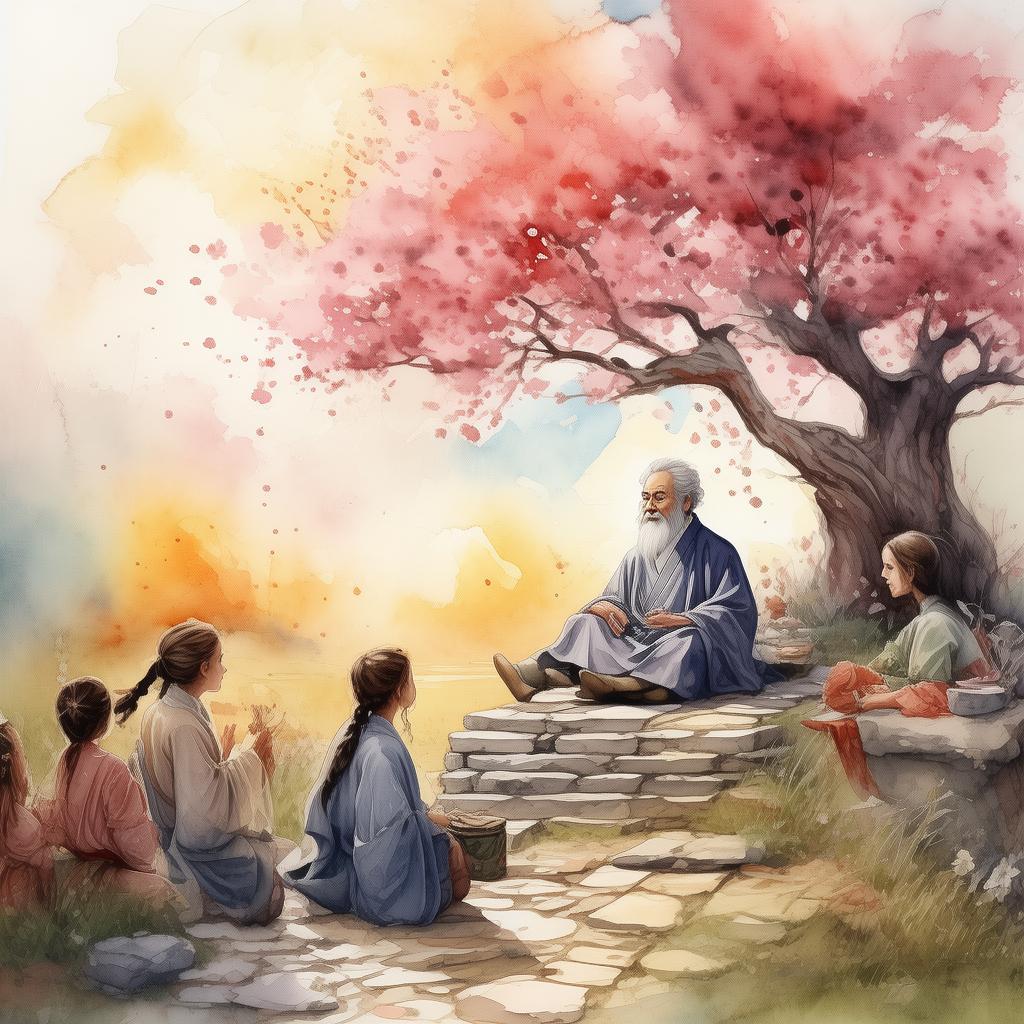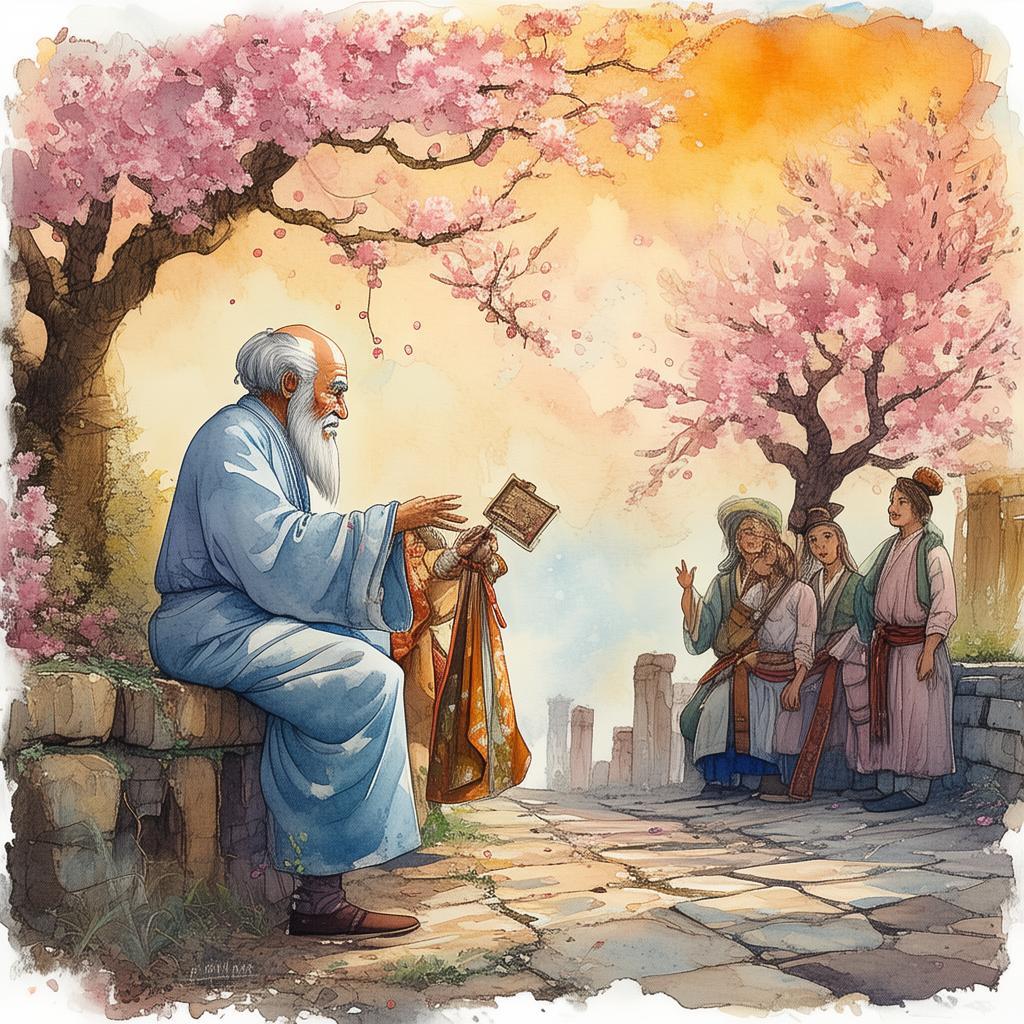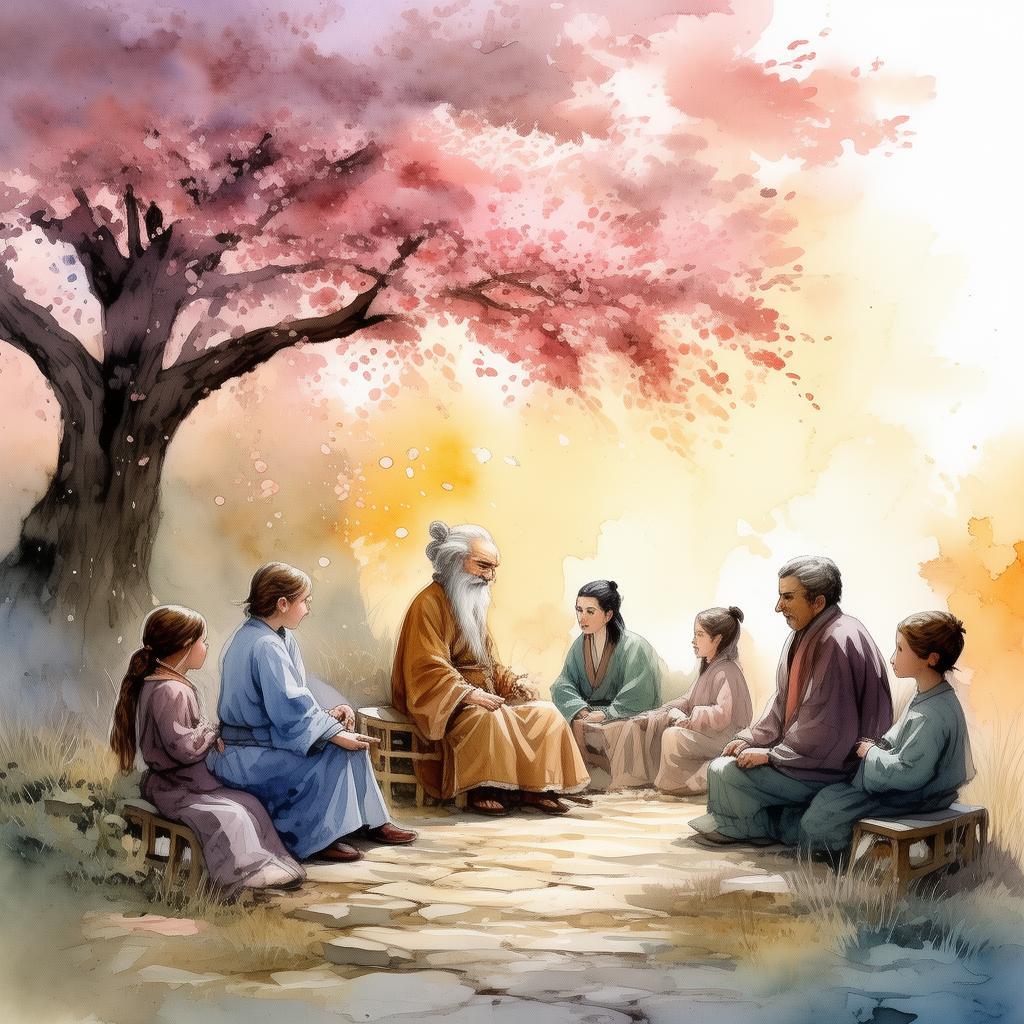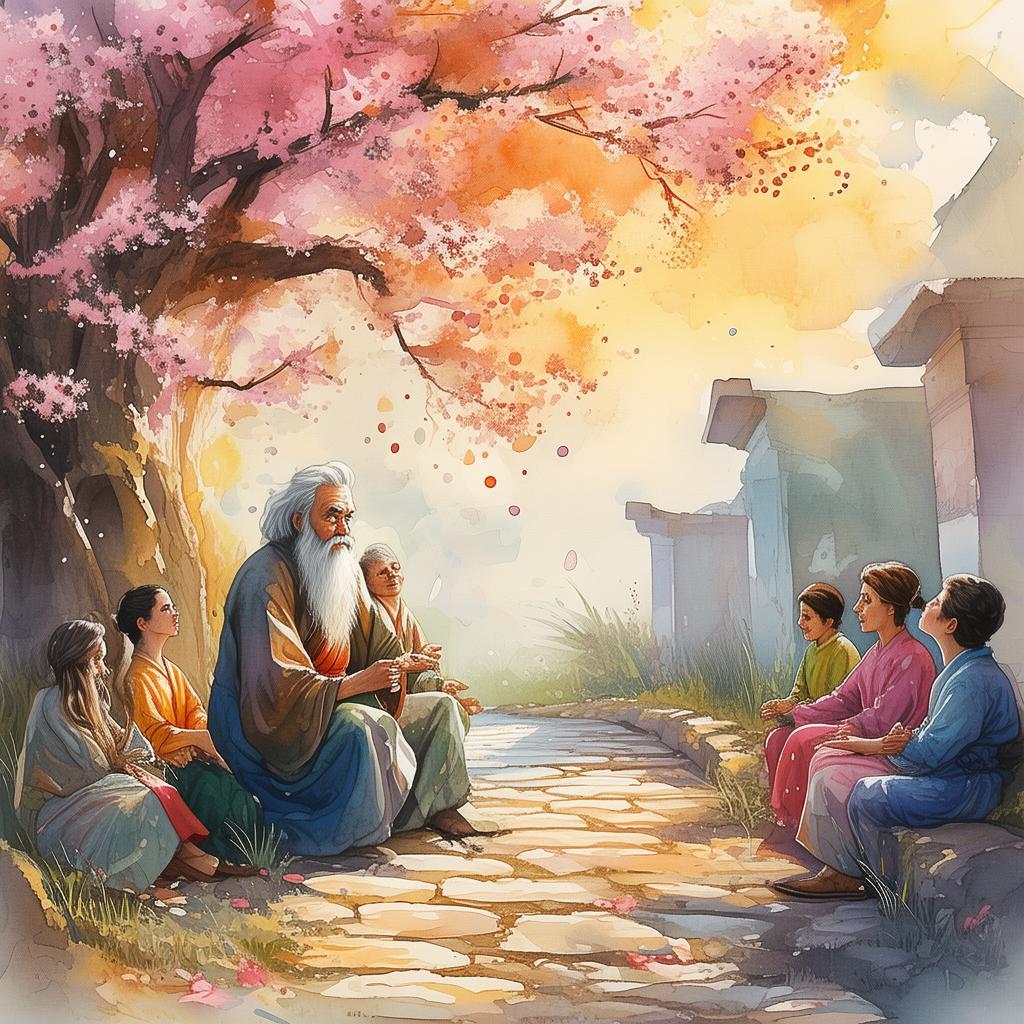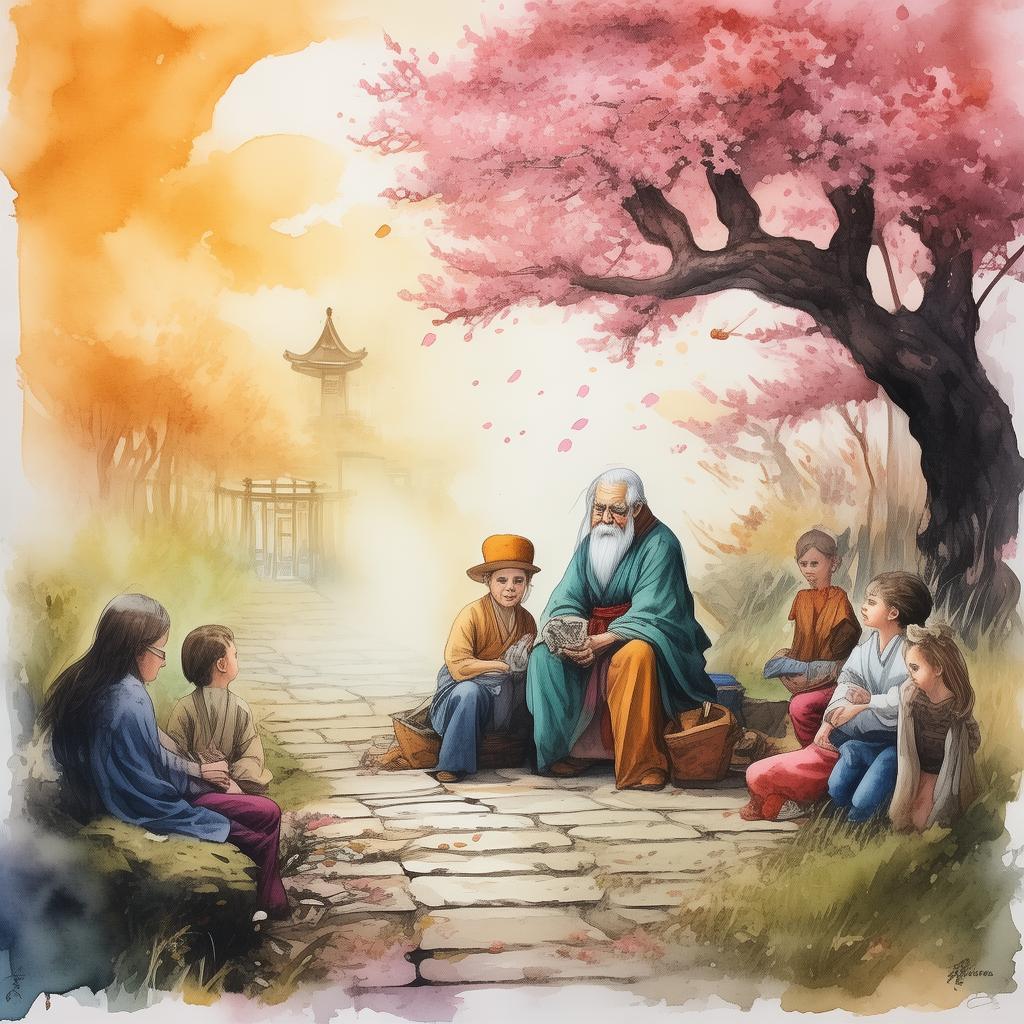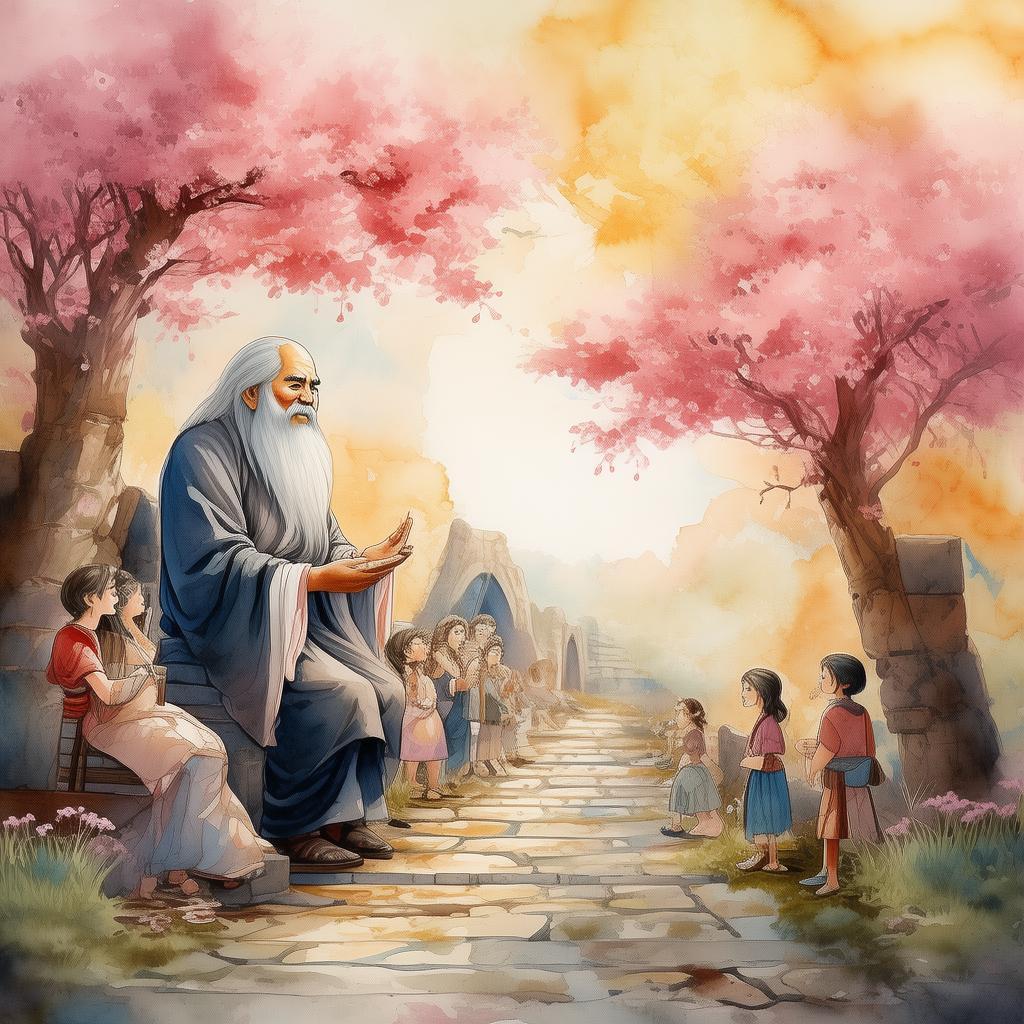The Alchemist's Quill: The Pen That Writes Reality
In the ancient city of Jingzhu, nestled between towering mountains and flowing rivers, there lived a young alchemist named Liang. His father, a revered master of the art, had always whispered tales of the Alchemist's Quill, a mystical pen that could rewrite reality itself. As a child, Liang had dreamt of finding this fabled quill, believing it to be the key to unlocking the secrets of the universe.
One day, while exploring the dense bamboo forests surrounding Jingzhu, Liang stumbled upon an ancient cave. The entrance was hidden behind a waterfall, and the air was thick with the scent of ancient magic. With a heart pounding, Liang pushed open the heavy wooden door and stepped inside.
The cave was vast and filled with the glow of strange, luminescent plants. In the center of the room stood a pedestal, upon which rested a pen unlike any he had ever seen. The pen was made of a single, unbreakable bamboo stalk, with a nib that sparkled like a starry night. It was the Alchemist's Quill, and it was calling to him.
Liang reached out and took the pen in his hands. The moment he did, a surge of energy coursed through his veins, and he felt a profound connection to the pen. He knew this was the moment he had been waiting for.
With the Alchemist's Quill in his grasp, Liang returned to his father's workshop. There, he began to experiment with the pen's power. He wrote a word on a piece of paper, and to his astonishment, the word transformed into a reality. He wrote the word "tree," and a tree sprouted from the ground. He wrote "mountain," and a mountain appeared. The pen was indeed as powerful as his father had said.
Excited by his discovery, Liang began to write stories of his own. He wrote of a utopian world where peace reigned, and prosperity abounded. He wrote of a world where every person was kind and compassionate. With each word, the reality around him began to change. The darkness of his village was replaced by the light of the sun, and the sound of despair was replaced by the melody of laughter.
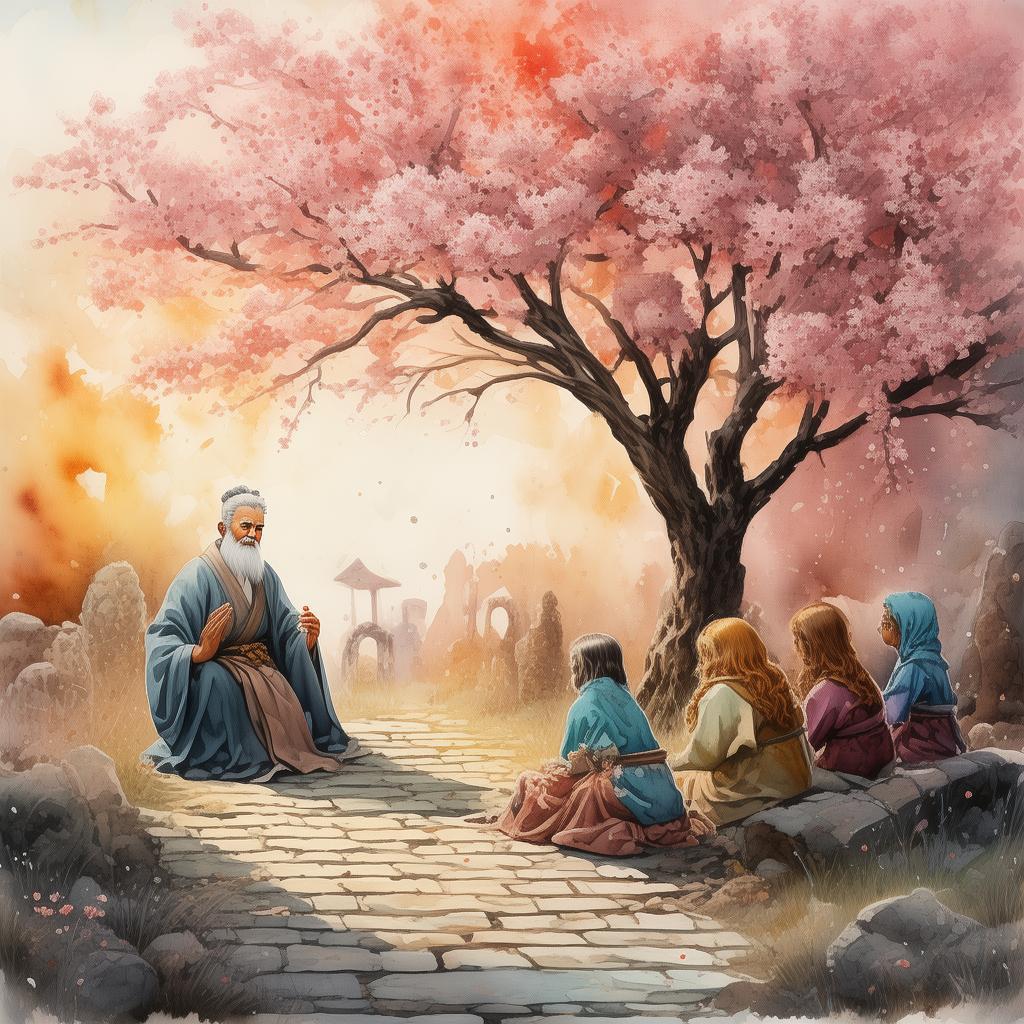
However, as Liang's power grew, so did his responsibility. He realized that with the Alchemist's Quill, he could create, but he could also destroy. One day, while writing of a great feast, he inadvertently wrote of a feast that would consume the village's resources, leaving them destitute. The villagers began to starve, and Liang was filled with remorse.
Determined to make amends, Liang sought his father's wisdom. His father, now an old man with silver hair, greeted him with a gentle smile. "Liang," he said, "the pen is a tool, but it is also a burden. With great power comes great responsibility. You must use your gift wisely."
Liang nodded, understanding his father's words. He realized that the Alchemist's Quill was not just a tool for creating, but also a mirror reflecting the true nature of his heart. He decided to use his power to help others, to heal the world, and to spread love and kindness wherever he could.
One day, Liang wrote of a young girl who was born with a deformity. As he wrote, the girl's condition began to improve, and eventually, she was able to walk and run freely. The villagers were amazed, and they began to see the Alchemist's Quill not as a source of magic, but as a symbol of hope and healing.
As time passed, Liang's stories spread far and wide. People from all over the land came to Jingzhu, seeking the wisdom of the young alchemist. They learned from him, and they too began to use their words to create a better world.
One day, as Liang stood before the pedestal in his father's workshop, he looked at the Alchemist's Quill and realized that the true power of the pen was not in its ability to create or destroy, but in its ability to inspire change. With each word, he had the power to shape the world in his own image.
And so, Liang continued to write, his stories of love, hope, and kindness echoing through the land. The Alchemist's Quill became a symbol of the power of the written word, a reminder that the pen is indeed mightier than the sword, for it can write reality itself.
In the end, Liang's story became a legend, a tale of a young alchemist who discovered the true power of the pen and used it to heal the world. And as for the Alchemist's Quill, it remained in Jingzhu, a testament to the magic of words and the transformative power of the human spirit.
✨ Original Statement ✨
All articles published on this website (including but not limited to text, images, videos, and other content) are original or authorized for reposting and are protected by relevant laws. Without the explicit written permission of this website, no individual or organization may copy, modify, repost, or use the content for commercial purposes.
If you need to quote or cooperate, please contact this site for authorization. We reserve the right to pursue legal responsibility for any unauthorized use.
Hereby declared.
